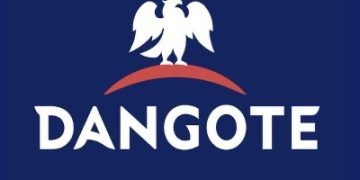By BASSEY ITA.
Policy somersaults have always been attributed to Military interregnum, a bane of development.
Historically,a broad spectrum of societal development is hampered by the continued stay of the Military in power,an issue which has given birth to the widely held conviction that “Military intervention in politics is an abberation.”
Arguably, many businesses suffer excruciating losses during the era of the military than what obtained in a Democracy. Investor confidence in the governance system to guarantee sustainability was mostly eroded.
For instance, banks and other financial institutions who would naturally fund Medium, Small and Micro Enterprises, MSMEs to grow, expand and add substantial value to the economy through the provision of some percentage capitalisation fund for that category of investment, had developed a clay foot during the Military.
They had all feared the inconsistency of policies as it relates to the economy.
Between 1971 to 1973 the then Military Government established the Small Scale Industrial Credit Scheme,SSICS and the Nigerian Bank for Commerce and Industry, NBCI to offer credit facilities for small scale businesses and to manage the World Bank’s investment scheme for MSMEs. Again in 1989, the then Military junta also established the Nigeria Economic Reconstruction Fund, NERFUND with a capital base of $39.4 Million to finance SMEs operations and then the Nigerian Export -Import Bank, NEXIM in 1990 with a paid up capital of $157.13 Million to promote non-oil export through various incentives.
The People’s Bank, Community Bank and the Family Economic Advancement Programme,FEAP of the Ibrahim Babangida era all ended as mere rhetoric.
Bureaucratic bottlenecks on the part of Government funding institutions, lack of proper coordination and training of Business Management Organizations,BMOs or SMEs and mostly frequent policy reviews would not support the growth of the economy through the effective participation of MSMEs during the era under review.
The consequences were as dire as raising the inflation rate to sky high, hardship and losses.
Experts in the Economy have also attributed the development to the lack of a well coordinated approach to the development of Medium Small and Micro Enterprises, MSMEs in the country, a situation which accounted for the bluntness of other private funding sources to support SMEs. In fact, it is also to the extent that the informal sector which they represent are without the requisite training and orientation to succeed in their business operations even with the funding provisions.
During this era, investigations show that funds were only deposited with those establishments,most of whom were typically bureaucratic in nature, to finance business operations and nothing else was heard about the funds except that there were bad loans.
Aside the stringent parameters for assessing the funds,there were no recourse to the orientation and coordination of Business Operators to enable them succeed and repay the facilities.
But in all of these,SMEs have continued to play a vital role in the economic growth of any entity. In fact,their roles cannot be overemphasized.
They create new jobs, products and services, making a significant contribution to economic growth.
In Europe,for instance where they are known as the “Backbone of Europe’s Economy,” the 23 million small firms that abound are a product of SMEs which represent 99.8% of non-financial businesses,and provide 2/3 of all jobs employing around 100million people and account for more than half of Europe’s GDP.
They also facilitate equal distribution of wealth and income just as they help to raise the competitive, enterprising spirit among investors thus enhancing innovation and growth.
One may query why that of Europe, and not Nigeria is brought to the fore. In Nigeria SMEs’ contributions to economic growth over the years have been the same rewarding experience as in other climes.
What is actually the difference between the SMEs in Nigeria and Europe is the operating environment, funding measures, policy issues to allow for enhanced,efficient and productive economy.
Europe is better. Nigeria has had to grapple with critical challenges.
Incidentally, frequent policy somersaults arising from frequent military coups or interregnum have been at the centre of those challenges.
Thankfully, democratic governance has come to stay and different approaches, orientation and expectations are in the air to improve on the ugly past.
Democratic Governance has arguably come with innovations which are providing illumination in the dark corners created by the long years of military interregnum.
This includes brighter horizon for Medium, Small and Micro Enterprises to operate and become more efficient and productive as a major driver of the economic growth process.
In Cross River State for instance, the Sen. Prince Bassey Otu led administration is currently innovating in the Economic sector to ensure that SMEs live out their full potentials as major drivers of the state’s economy and to contribute meaningfully to its growth.
The Administration is keen on changing the Civil Service toga hitherto known of the state to that of an industrial hub through the active participation of MSMEs.
The Cross River State Medium, Small and Micro Enterprises, MSMEs Development Program, an initiative of the State Government is supervised by the Ministry of Wealth Creation and Employment to address critical challenges faced by the MSMEs otherwise known as the informal sector with a view to raising their level of productivity and sustainability in the global business environment, and stand them out as major drivers of the economic growth agenda of the Government.
The program is also intended to enhance the economic prosperity of the people of Cross River State by engendering stronger private sector participation.
What mindset of the Government that is imputed into the program is one that sees to the creation of more than 70% job opportunities as well as of additional income for households and increased Internally Generated Revenue, IGR for the state.
The program is ran in concert with some affiliate organizations and partners prominent among them,the MSMEs Development Consultancy Limited, MDCL, a foremost Economic Management Consultancy Consortium.
The MDCL has been on the mandate to profile businesses under the aegis of Business Management Organizations,BMOs in the state.
The organization also has the mandate to train coordinate, and offer other ancillary and or support services to those BMOs or SMEs to achieve efficiency in their operations and the attendant productivity.
Interestingly, the MDCL has made greater inroads into achieving a successful business environment in the state.
The statistical analysis of the MDCL’s profiling of potential beneficiaries of the Federal Government’s NANO Grant and of the Business Management Organizations indicated below speaks volumes of the Government’s interventionist measures to change the sordid narratives of the past as it relates to the economy.
Table showing NANO Grant and BMOs profiled by the MDCL:

It is to be emphasized that the MDCL shall remain within a five year mandate to ensure that MSMEs have the impetus to easily, comfortably and satisfactorily meet the expectations of funding sources in terms of repayment of facilities collected.
This,the consortium intends to do through creating a conscious mindset couple with the enabling policy environment for BMOs.
Hitherto, it was not common place for people to speak well of the state’s economy because of the disposition of the people towards business.
It was even worse when a few businesses in their private and informal dispositions attempt to access facilities to no avail.
But Government has so far proven to be proactive as the Ministry of Wealth Creation and Employment in conjunction with the MDCL is keen on addressing those critical challenges that usually militate against the smooth operations of MSMEs in the past including funding, training and coordination among others.
Recently,BMOs registered with the Government were encouraged to apply as beneficiaries of the Federal Government’s Intervention Fund, FGIF where ₦75 billion facility was made available for the MSMEs and Manufacturers categories each.
Interestingly, a good number of Cross River Business Owners and Operators took advantage of the announcement and encouragement to apply.
While some applied for the facility ranging from ₦500 million to ₦1billion for the manufacturing sector,others applied for the ₦100,000 to ₦1million facility meant for small businesses in the MSMEs category.
The Bank of Industry,BoI also provided a ₦10 million facility for rural based MSMEs which some Cross Riverians equally took advantage of.
Cross River people were often said to be wholly given to civil service orientation and not business. But the current narrative as gleaned from the above statistics is a complete turnaround. This is unprecedented and a commendable feat for the current administration which has also gone ahead to open up the state for investment opportunities to berth.
The stability of democratic governance has given Nigerians hope and confidence in the economic growth process unlike the era of “Khakitocracy,” where frequent coups and policy somersaults were the order of the day.
Indeed,as we celebrate 25 years of unbroken democracy,with the attendant stability,it is important to observe that there is a silver lining on the economic side of the people and for Cross River State,Sen. Prince Bassey Otu has been keen on perfecting on this dream.
Bassey Ita is a Public Policy Analyst. He writes from Calabar.
























